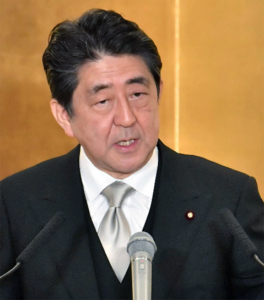Are the Japanese warming to migrants, refugees?
Japan’s history and reputation as an insular country unwelcoming of foreigners may by about to change.
A recent poll last month by The Nikkei Shimbun newspaper found that 70 percent of Japanese people said they believe an increase in foreigners was “good,” with a majority of that group citing the need for labourers as the primary reason.
 Even people who said they were not excited at the prospect of an influx of foreign residents answered, “I don’t like it, but it can’t be helped.”
Even people who said they were not excited at the prospect of an influx of foreign residents answered, “I don’t like it, but it can’t be helped.”
Another poll by national broadcaster NHK found the majority of respondents thought the Japanese government accepts too few refugees, with 24 percent saying Japan should accept more of them.
While not a ringing endorsement, it is still a substantial portion of a country that’s never been convened of the benefits of immigration.
Japan is the world’s fifth-largest donor to the UN refugee agency UNHCR, yet it accepts less than 1 per cent of the world’s refugees and asylum-seekers.
This staggeringly low acceptance rate and a tough vetting regime for asylum seekers has earned it a reputation for routinely turning away refugees.
In December 2018, the Japanese Government introduced an immigration policy that welcomed foreign labourers in an attempt to fill the rapidly widening holes in Japan’s aging workforce.
However, the policy did not address any changes to the status of refugees and asylum-seekers.
So, as the parliament, or ‘Diet’ liberalised its strict immigration policies, it tightened the rules for refugees.
And at the same time, it cut the rights of asylum applicants to work while their applications are under consideration.
Given the poll results, this stance may be at odds with public sentiment on the issue.
The Japan Association for Refugees (JAR) says there’s an increased interest in helping refugees in Japan and is working to make Japanese people a more significant part of its donor base.
JAR focuses on supporting refugees in Japan with legal assistance, counsellors, meals, clothes and a space to rest or sleep during the day.
“Society has become more open to foreigners and more used to living with them,” says Eri Ishikawa, chair of the board for JAR.
This shift is partly credited to universities integrating more coursework on immigration, as well as Tokyo’s transition to becoming a tourist-friendly city in advance of this summer’s Olympics.
The Nikkei poll also found that the younger generation is more open to foreign workers, with 48 percent saying that Japan should actively accept them.
As Japan’s population continues to age and the labour market is squeezed further, this is not a debate that will go away.












